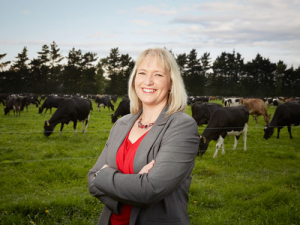Confidence in the New Zealand agricultural sector has lifted dramatically over the past quarter.
Rabobank says it is now at the highest level recorded in the history of the bank’s Rural Confidence Survey dating back to early 2003.
The second quarterly survey for the year – completed earlier this month – has shown net farmer confidence has risen to +54%, up from +27% recorded in the March 2017 survey.
The survey found the number of New Zealand farmers expecting the agricultural economy to improve in the year ahead had jumped to 57% (compared with 34% in the previous quarter) with those expecting agricultural economic conditions to worsen dropping to three per cent of survey respondents (from 7%).
Rabobank New Zealand general manager for country banking Hayley Moynihan says confidence in the outlook for the agricultural economy had risen amongst farmers from all sectors since the last survey.
“Confidence in the agricultural economy amongst dairy farmers and horticulturalist was strong last quarter, and we’ve seen it climb even higher in this survey. However, the most notable jump in confidence was recorded amongst sheep and beef farmers, with sentiment amongst this group lifting from a net reading of +nine per cent last quarter to +53% in this survey,” she says.
Among survey participants expecting the agricultural economy to improve, the vast majority (71%) cited rising commodity prices as a key reason for holding this view. This was particularly the case amongst dairy farmers (at 77%) and sheep and beef producers (at 66%).
“Buoyancy in the pastoral sectors is underpinned by strengthened farmgate returns across the industries,” Moynihan says.
“Sheep and beef farmgate prices continue to hold steady at strong levels for beef and higher than initially expected for lamb, and lower supply from New Zealand as well as other key export regions will underpin good returns over the coming months.
“Dairy commodity prices continue to strengthen thanks to steady demand and lower supply and this has been recently reflected in strong opening price signals for the new 2017/18 season by many dairy processors.”
The survey also found farmers’ expectations for their own farm business performance were up on last survey.
More than half of farmers surveyed were anticipating the performance of their own farm business to improve across the next 12 months contributing to a net confidence reading of +47%, the highest reading since late 2013.



















